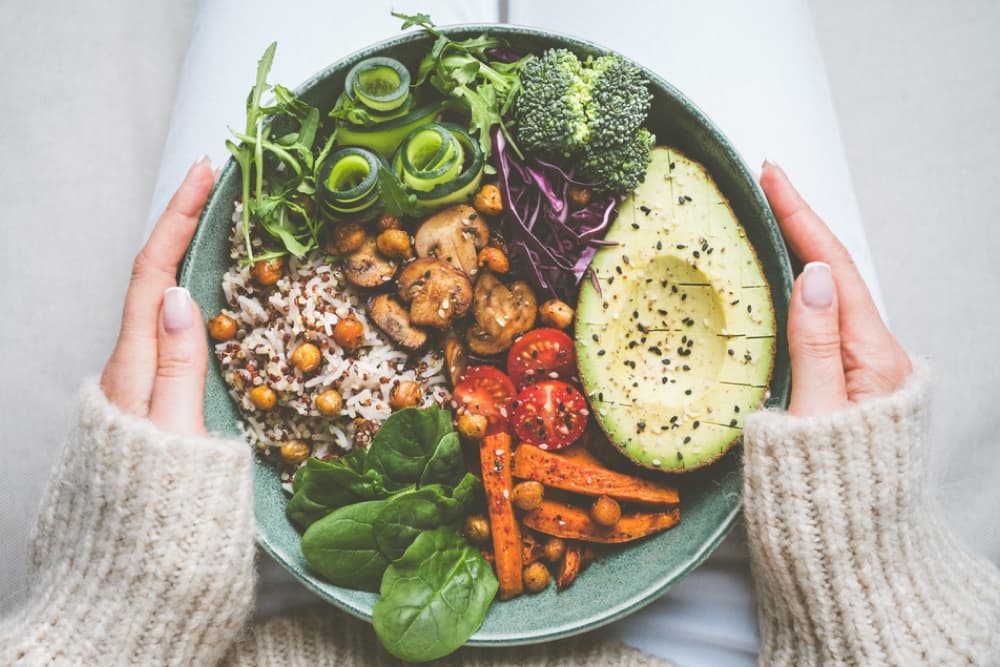
12 supplements that help improve bone density
Bones are the building blocks of the human body, providing it with a framework, supporting its movement, helping it store minerals, and protecting the organs. Here, bone density plays a key role in maintaining bone strength and preventing bone diseases. Low bone density indicates brittleness, which may eventually lead to health conditions like osteopenia and osteoporosis. Nevertheless, nutrition-based changes, like taking vitamin and mineral supplements, can help improve bone density and keep diseases at bay.
1. Calcium
Calcium constitutes a major part of bone tissues and can help strengthen bones. While dairy products are major food sources of calcium, those with lactose intolerance may have to avoid dairy, which may reduce calcium intake and lower bone density. Today, several calcium supplements are available in the market. One can consult a nutritionist or doctor before opting for these products.
2. Vitamin D
Vitamin D is an essential nutrient responsible for the absorption of calcium in the body. In fact, studies have shown that without adequate intake of vitamin D, the body absorbs only 10–15% of calcium derived from foods. Sunlight is a major source of vitamin D, so optimal exposure to sunlight is essential to increase vitamin D levels in the body. Vitamin D supplements can also help with calcium absorption, contributing to an increase in bone density.
3. Vitamin K
Although research regarding the extent of vitamin K’s effectiveness in ensuring bone health is inconclusive, some studies suggest that vitamin K helps increase bone strength and reduces the susceptibility to fractures. Alongside choosing vitamin K-rich foods like leafy greens, Brussels sprouts, and soybeans, adding vitamin K supplements can also help increase the levels of this nutrient in the body.
4. Boron
Although a trace element, boron is crucial for bone development and maintenance, as well as the absorption of other vital nutrients like calcium and magnesium in the body. Dried plums, prunes, raisins, and dried apricots are excellent sources of boron. In addition, boron supplementation can boost the nutrient’s concentration in the body, improving bone health.
5. Magnesium
This vital mineral is essential for carrying out various bodily functions, including boosting immunity, maintaining nerve and muscle function, ensuring a steady heartbeat, and strengthening the bones. With 60% of the total magnesium in the body found in bone tissues, this mineral is imperative for bone health. The intake of magnesium-rich foods like legumes, pulses, nuts, whole grains, bananas, and avocados can boost the mineral levels in the body. It is also a good idea to replenish the body with magnesium through supplementation.
6. Soy isoflavones
Isoflavones are a type of antioxidant also called phytoestrogens. Sometimes, menopause can result in a loss of calcium. This is because the menopausal period leads to a drop in estrogen, which prevents calcium loss. Phytoestrogens can help resolve this issue, reducing the risk of osteoporosis. Studies have shown that the intake of soy isoflavone supplements significantly increased bone density among participants when regularly taken over a period of one year.
7. Zinc
Zinc has been known to play a key role in regulating bone metabolism and ensuring bone strength. Certain studies have demonstrated that those with osteoporosis have lower zinc levels than those without the condition. Zinc is found in optimal levels in foods such as red meat, oysters, poultry, whole grains, cashews, and dairy products. Zinc supplementation can also help increase the levels of this nutrient in the body.
8. Selenium
Studies have suggested that this trace element may be essential for bone health and development. Selenium is abundant in foods like Brazil nuts, fish, chicken, turkey, and beef. However, selenium supplementation may be required to ensure optimal levels of this nutrient.
9. Collagen
Collagen is an essential component of bones and connective tissues in the body. So, adequate levels of collagen are essential in ensuring bone health and increasing bone density. Further, taking collagen powder and supplements regularly can help build stronger bones. Certain foods like beef bone broth, sardines, organ meats, peppers, legumes, and leafy greens are also rich in collagen.
10. Copper
Besides helping the body generate red blood cells and enhance the functioning of nerves and the immune system, copper helps in the formation of collagen. Organ meats, nuts, potatoes, prunes, and oysters, along with other shellfish, are rich food sources of copper. In addition, copper supplements can help boost the concentration of this element in the body.
11. Manganese
The human body consists of 10 to 20 mg of manganese, out of which 25-40% is concentrated in the bones. Moreover, manganese is an important mineral that contributes to the production of several enzymes involved in bone development. So, manganese supplements may help in boosting its levels in the body. Further, foods like shellfish, legumes, oatmeal, spinach, and black pepper are rich sources of this mineral.
12. Silicon
It has been found that silicon improves bone matrix quality and ensures bone mineralization. Further, the intake of bioavailable silicon is linked to an increase in bone density. Whole grain bread, green beans, oats, barley, whole nuts, organ meats, brown rice, and raisins are a few food sources of silicon. Silicon supplementation may also be a good way to increase its concentration in the body.
Supplementation of essential vitamins and minerals is one of the ways to improve bone density. However, the dosages mentioned in the instructions on supplement containers should be followed carefully. It is also a good idea to consult a doctor before starting with supplementation. Additionally, better food choices should accompany supplementation to boost nutrient levels in the body.


